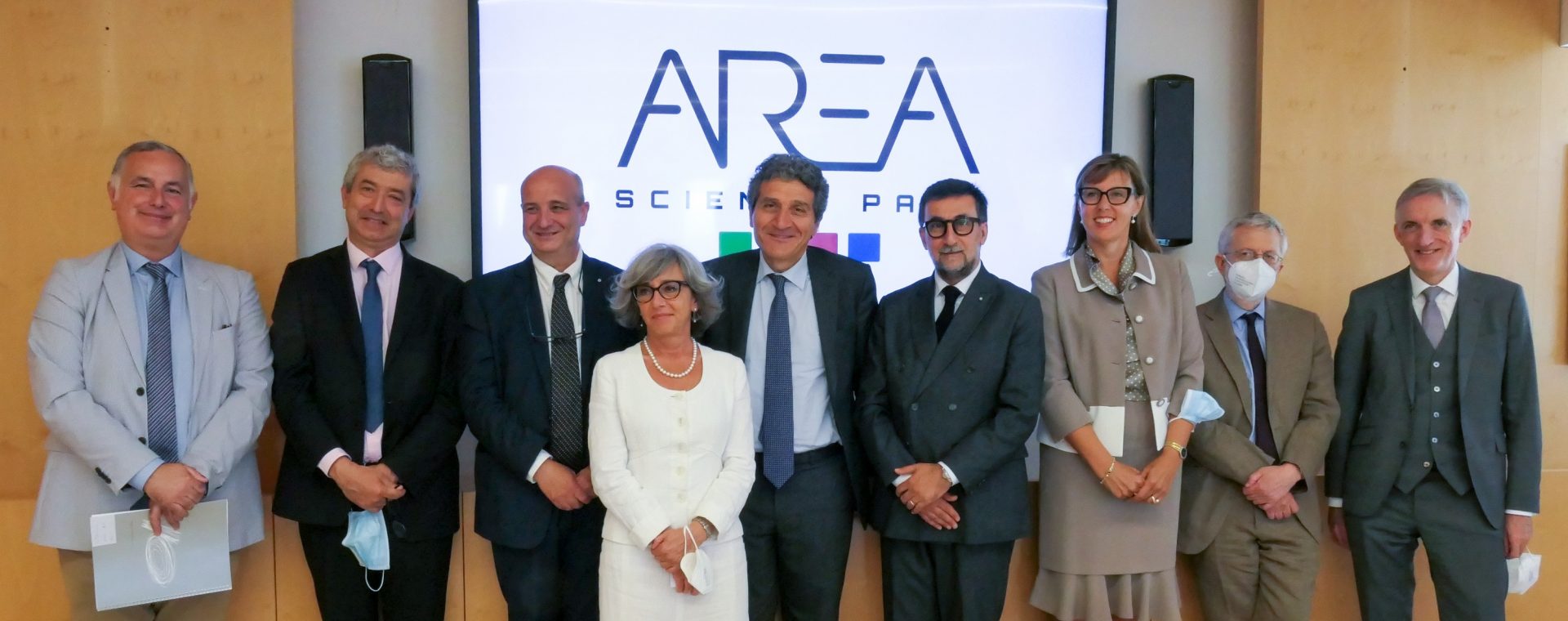11/07/2022
International cooperation and the “Hydrogen Valley” protagonists at the symposium held at Area Science Park
At “GeoAdriatico”, an international symposium organised by the non-profit Vitale
Innovazione
International cooperation and the “North Adriatic Hydrogen Valley” project has been focus in the context of the GeoAdriatico symposium at Area Science Park, organised by the non-profit organisation Vitale. In attendance at the symposium was Ambassador Fabio Cassese, Director General for Development Cooperation at the Ministry of Foreign Affairs and International Cooperation, among others.
There were two events on the agenda, the first of which was attended by representatives from the ICGEB, OGS, Elettra Sincrotrone and Area Science Park. President Caterina Petrillo opened the meeting in the morning. Marianna Maculan, Head of External Relations at the ICGEB, explained how the ICGEB is an international organisation centred around research, training and technology transfer in the life sciences. It was set up to promote global sustainable development and its work is in line with several of the UN’s 2030 Agenda goals. Sustainable development – through studying the seas and oceans and understanding geological processes – is, in turn, one of OGS’s key missions, as explained by president Nicola Casagli. The OGS is also very active in scientific and environmental diplomacy in many parts of the world.
Elettra Sincrotrone Trieste is an international multidisciplinary research centre of excellence, specialising in the generation of synchrotron light and free-electron lasers for studying materials, with applications spanning physics, chemistry, life sciences, environmental sciences, cultural heritage conservation and more. As Chief Scientific Officer Giorgio Paolucci pointed out, internationality is an intrinsic part of the lab’s work, as evidenced by its involvement in the CERIC-ERIC consortium and by the training of researchers from developing countries. Deputy General Manager Stephen Taylor outlined Area Science Park’s main focuses, including on generating business, implementing innovation processes, and providing cutting-edge technology platforms to science and industry in the fields of genomics, advanced computing services, materials and advanced microscopy, as well as on participating in projects, international networks and innovation diplomacy work.
“Area Science Park is based in Friuli Venezia Giulia which is a border region and, as such, has always paid particular attention to international cooperation,” explained Area Science Park President Caterina Petrillo. “This allows for a privileged dialogue with countries in central, southern and eastern Europe which then become natural partners for research and innovation collaborations and projects. One recent example is the work going on to create the ‘North Adriatic Hydrogen Valley’: the first transnational project aimed at developing a dedicated hydrogen valley, involving Croatia, Slovenia and the Autonomous Region of Friuli Venezia Giulia”.
Ambassador Fabio Cassese stated that, “Trieste’s science hub is an outstanding example of both internal and external cooperation and integration, with an international outlook that demonstrates how science can be a driver of sustainable development for countries around the world, and one which has a positive impact on business and society. Trieste’s multi-level integrated set-up is capable of generating collaborations with the Ministry in various different fields.”
The “North Adriatic Hydrogen Valley” project was the subject of an in-depth discussion held in the afternoon, with the participation of representatives from the Slovenian and Croatian governments, the Autonomous Region of Friuli Venezia Giulia, Area Science Park, the University of Trieste, and the Port Authorities of the Eastern Adriatic. The “North Adriatic Hydrogen Valley” is the first transnational project aimed at developing a dedicated hydrogen valley. The project came about following an agreement between Croatia, Slovenia and the Autonomous Region of Friuli Venezia Giulia, with the aim of establishing a framework for cooperation in developing environmentally friendly hydrogen-production technologies. This collaboration will not only contribute to transitioning to an integrated ecosystem involving the energy, industry and transport sectors, but will also allow cooperation in research and innovation, to develop a hydrogen supply chain.